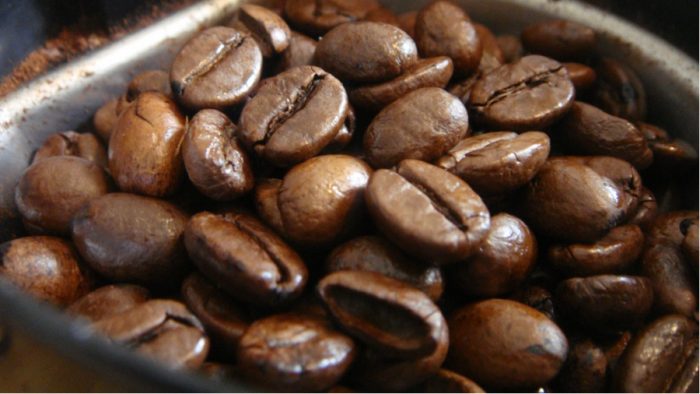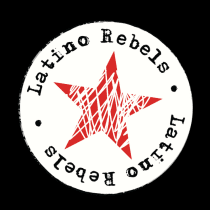For the past two or three years the coffee giant Kenco Coffee has been advertising an initiative in the U.K. that gives at-risk young people from Honduras a chance to become coffee farmers and go into the coffee business. The program, which goes by the name of Coffee vs Gangs, was designed to give those born into poverty and an unstable economic infrastructure the skills that will enable them to turn their lives around.
The pilot was not meant to simply give 20 fortunate young people the opportunity to learn a handful of skills in a therapeutic environment and then turn them back onto the streets seeking to consume them. It was designed to equip them with the skills and support needed to become successful future coffee entrepreneurs. Many of those selected for the program visualized a future tied up with gangs, drugs and crime. Falling victim to crime was a real possibility. In order to escape the realities of life in Honduras, many of the country’s youth have attempted to flee to the United States for refuge, a fresh start and, more important, an opportunity to simply have a life.
From the moment I saw the Coffee vs Gangs advertisement on television, I wanted to know more. I felt Kenco’s efforts were commendable; in my mind anything that sought to improve the lives of those who were trapped in circumstances they were incapable of changing was a good thing. The visuals for the advertising campaign were enthralling and took you on a journey that Kenco themselves hoped would help the viewer understand what life was like for many young Hondurans. Fear comes to mind, along with thoughts of what it must be like to continuously live with the knowledge that life is so uncertain. The soundtrack featured in the advert was the specially commissioned and infectious “Baila Conmigo.”
The Coffee vs Gangs program has been running in a secret Honduran location since 2014. The pilot comprised of 20 young people between the ages of 16 and 27. Three months into the pilot, those chosen had learned the basics of coffee farming and were learning Spanish, English, math, computer skills and how to write a business plan. They were, as one student said, “learning how to maintain the land and give it life.” The program is a chance for the students to bond and have fun, but students are still expected to work hard.
The scheme, now in its second year, attempts to provide young people with an alternative view on life, one that is not tied up with the constant threat of violence and death. The scheme provides a safe environment that teaches the students valuable life skills. It is also seeking to help those who find it near impossible to find work a chance to go into business and one day provide jobs for others. By the end of the course, students are expected to have a serious business plan. The project also helps instill a sense of pride and is a further boost to the Honduran coffee industry. Coffee accounts for 42 percent of all agricultural exports in Honduras, and there are 114,000 coffee farmers in the country today. In 2012 Honduras was ranked seventh in the world in coffee production and was the second biggest exporter of high-quality Arabica beans.
Kenco Coffee prides itself on quality coffee, sustainability, fair trade and a coffee-making history that stretches back more than 90 years. The company was initially called The Kenya Coffee Company and was founded by a group of retired coffee planters who initially selected and roasted beans exclusively for the group’s luxury London coffee shops. The company grew rapidly in its early years by selling roast and ground coffee direct to customers at their shop located in London’s Mayfair district. The business expanded and a number of shops opened in London. During the 1960s the company acquired the rights to distribute the famous Italian Gaggia espresso machines and started selling them to other coffee bars. It was during this period that the company changed its name to Kenco Coffee due to the decline in coffee coming from Kenya. Today Kenco expresses a committed to improving the lives of others and have set up the Coffee Made Happy program which “aims to help one million coffee farmers become successful entrepreneurs.”
Honduras is one of the poorest countries in Latin America and has been rocked by economic and political instability. San Pedro Sula, the country’s second largest city and its main industrial center, had the unfortunate title as the “murder capital of the world” during the first half of the decade. (Venezuela’s capital now has that piteous distinction.) In 2014 San Pedro Sula’s residents were being murdered at an annual rate of 169 per 100,000 residents, a figure that at the time dwarfed the U.S. leader, Flint, Michigan, where the number rate was 62 for every 100,000.
It is as a consequence of large numbers of Honduran gang members being deported back to Honduras in the 1990s that L.A. gangs such as MS-13 and Barrio 18 became prevalent in Honduras. The lawlessness that is said to govern the country makes it easy for organized crime to operate without fear of reprisal. Its police forces are stretched and struggle to keep up with the killings that have become endemic. Due to its unique location, Honduras is a convenient transit point for drugs making their way north to the United States. Lack of employment has led many to view the drug business, which is tied up with violence, incarceration and death, as the only way out. For those desiring a better life, it is sometimes impossible to dream because the reality is that Honduras’s many gangs are never too far away, ready to prey on the defenseless.
Kenco believes that in spite of all that plagues Honduras, there is another way. The Coffee vs Gangs initiative is about young Hondurans learning the ways they can positively contribute to their country’s economy and overall growth. The program provides a therapeutic environment where many can heal and attempt to rid themselves of the psychological scars they carry from the day-to-day violence that surrounds them. The project’s location has been kept secret because many believe the students would be robbed of the money they were given as an educational subsidy.
I could never imagine what it would be like to be considered prey and wonder whether I would make it through the day alive. I couldn’t imagine living in the kind of poverty and violent circumstances that forces me to travel thousands of miles to enter a country illegally just for a chance at life. This is the reality many people face in Honduras, but there is also hope. The Coffee vs Gangs initiative is a positive step which can truly inspire. That the program takes place in Honduras is good in so many ways. It gives the students a chance to remain close to their families and connections, but most important, it gives the students an environment to learn, laugh, grow and be young people allowed to reach for what they want out of life. It is a chance for them to be a positive part of Honduras’s future.
***
Wendy Hackshaw is a writer from London who is currently researching late-1970s New York City and the cultural and social movements that came out of that period. Her work focuses on revolutionary aspects of style, music and culture. You can follow her @deeshimmer.




